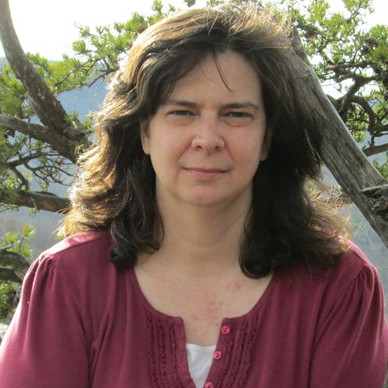They call me ‘the quiet one.’ It’s not a title that I like, but I have to admit that it is accurate. I know that some question why Jesus chose me to be one of the twelve, implying that it was not based on merit, but other credentials. When I dare to be honest with myself, I ask the same question.
It is not that I don’t want to be here; I passionately do. I have never questioned my choice to follow Jesus because I know without a doubt that he is the One. It is not his miracles or profound teaching that convince me of this, although both bring me to my knees in awe and wonder. It is not the events surrounding his birth, which I have heard since childhood. It is him! He has a way about him that defies explanation. His handling of the scriptures and his way with people. – they have not only an authority about them but also a gentleness that seems to speak to the soul in a language that the mind can’t comprehend. It eludes my understanding that anyone can experience his presence and walk away unchanged, not to mention hostile. Yet, many do just that; and I weep for him as well as for them.
This hostility has us all on edge with nervous anticipation. We have been slowly making our way to Jerusalem for Passover. We know that there are orders to arrest him on sight. Tension has been building, and it has reached a breaking point. Something is going to happen! We are all eager for him to usher in the Kingdom of God, but as always, we struggle to understand his words. We don’t know if we should rejoice at the thought of entering the city or run the other way to save him from himself.
As we have journeyed, he has healed lepers, played with children, made bold demands of the rich, given sight to the blind, dined with tax collectors, and offended the ‘righteous.’ In these acts, we see glimpses of the Kingdom of Peace that is to come. Yet, his words have grown dark and confusing. He equates “the day the Son of Man is revealed” with the day Noah entered the Ark, Lot’s departure from Sodom, and of vultures gathering around a dead body. While we happily anticipate the Kingdom that he proclaims, he speaks of being killed and rising again. He does not explain such statements, and we draw our own conclusions about what these parables mean. Most think it is merely symbolic of the end of his status as the ‘humble teacher’ and his new identity as the ‘King of the Jews.’ He speaks very little about Rome, but we all look forward to the day when he will cast off the shackles of Caesar and his puppets, and once again bring true freedom to the people.
I cannot imagine what my role will be in this kingdom. I do not have the ferocity of Simon, the quiet leadership of Andrew, the connections of Phillip, or the analytical mind of Matthew. Even when our Lord sends us out in pairs, I assume the lesser position, making individual connections among the people, while my partner takes the role of ‘preacher.’ I do have some of the most intriguing conversations, and it is most satisfying when I witness a spark of understanding become a flame in another’s mind. A few such encounters may be all I have to offer upon my return, but Jesus always seems pleased with my report.
Others have grand visions for their roles in the coming kingdom. Just recently, the sons of Zebedee, along with their mother, made an extremely bold request of Jesus – to be given seats at his right and left hand when he takes his throne. It is my understanding that Jesus did not grant their request, but that did not stop the others from confronting them about their presumption, especially since John is the youngest of all of us. While he does have a special relationship with Jesus, it seems to be in part due to his youthfulness. Jesus has almost a fatherly affection for him, protecting his sensitive heart from the rowdy older men among us that sometimes enjoy making sport of him.
It was not long after this that Jesus told a story that has continued to stir the waters of my mind. We were enjoying a restful stay at the household of Zacchaeus, the tax collector. There was a chill in the air, and we were gathered around the fire in his courtyard, sharing food, drink, and laughter. Of course, it was Simon Peter who brought up the request of James and John. Since the immediate offense had faded, he teased James about his ‘rejection’, inviting the light-hearted exchange of insults that some men seem to enjoy. These comments once again led to talk of the coming kingdom and all of the hopes and dreams of our people. Jesus grew quiet as he listened to the brash predictions for what might happen when we arrived in Jerusalem. After a while, he shook his head, set down his drink, and stood up. The gathering grew quiet as he took a moment to look slowly from face to face. As he made eye contact with me, I was touched by the profound sadness in his expression, and I wondered what those deep, dark eyes were seeing. Was it my future? Why did he speak of his kingdom with deep joy, but become disturbed when his followers did the same?
We had come to recognize that a certain stillness before he spoke was evidence of an internal conversation he was sharing with his Father. This time the moment seemed to last a little longer than usual, as the now solemn group waited for him to speak. Then, like he often does, he began to tell us a parable.
He spoke of a nobleman that went to a foreign land to be appointed King and then to return home. The man called ten servants and gave each about three months’ wages. His instructions were to put the money to work until he returned. Also living in the land were some who fiercely opposed him, and unsuccessfully fought against his appointment. The newly-crowned king returned home and called his servants to give an account for the money that he had entrusted to them. Some had good reports and were rewarded with greater responsibilities in the new kingdom. But one servant returned the King’s money, stating that because of fear, he had chosen to hide it away.
The king harshly rebuked the man, reclaimed the money entrusted to him, and gave it to the servant with the best report. Jesus spoke of no further punishment for the servant, and it appeared he remained a member of the household, albeit with a lower level of responsibility. The opponents of the king did not receive the same mercy. The parable concluded abruptly with the king ordering their execution.
As was his manner, Jesus did not offer any explanation. He simply walked out from among us, preparing to continue our journey to Jerusalem. All around me, conversation and merriment resumed.
I lingered by the fire contemplating Jesus’ words and my place in the kingdom. Like the king and his servants, Jesus had bestowed on us a great trust – his message to the world! To validate our right to carry this message, he gave us the power to heal disease and authority over demons. He promised to provide for our needs and give us words to say. Such a trust was infinitely more valuable than a mere three months wages. I could not help but wonder if my conversations with a few individuals would be considered an adequate return. How did my results compare with those of the ones who effectively spoke to the masses? I had no ambition to be seated on the left or right side of the throne, but I wanted to serve Jesus well. I wanted to be worthy of the trust placed in me. The more I thought about the unworthy servant of the parable, the more I came to believe that fear was only a small part of his problem. Such fear may have caused him to hesitate, but it led to neglect. That was a choice, and his guilt increased daily until the king returned. I realized that letting the trust remain idle was a greater offense to the king than even a complete loss suffered after a genuine effort.
My mind wandered back to the day that Jesus spoke those two words that forever changed my life.
“Follow me.”
I don’t know what his reasons were, but he chose me. With full knowledge of who I was and what little I had to offer, he called me, gifted me, and opened doors for me. I was not in a position to argue. After all, it is the buyer who ultimately determines the worth of that which he desires. Such thoughts were intimidating and empowering at the same time!
As I rose to join the others, I renewed my commitment to be a faithful servant. I wanted to live so in awe of the gifts entrusted to me that I could no more neglect them than I could forget to breathe.
I don’t know what awaits us in Jerusalem. We keep moving forward with both hope and trepidation. But isn’t that the way of life? Every sunrise we face the unknown, aware that the only constant in this world is Almighty God himself – his great mercy and unfailing promises! We might not understand those promises any more than we do the parables of Jesus; we just need to embrace him, accept the trust, and follow him.
Jerusalem awaits our arrival!
Featured Image by Esther Wechsler on Unsplash




















Comments are closed.